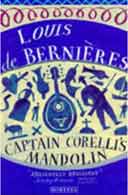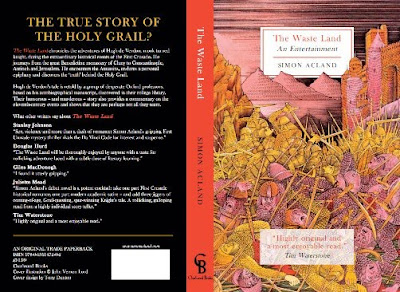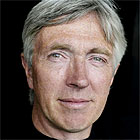“SIN BOLDLY” –MARTIN LUTHER
The fascinating, complex German reformer Martin Luther was many things. One of them was quotable!
Luther’s views were condemned as heretical by Pope Leo X in the bull Exsurge Domine in 1520. He was, consequently, summoned to either renounce or reaffirm them at the Diet of Worms on 17 April 1521. When he appeared before the assembly, Johann von Eck, acting as spokesman for Emperor Charles the Fifth, showed Luther a table filled with copies of his writing. Eck asked if he still believed what these works taught. Luther requested time to think about his answer. Granted an extension, he prayed, consulted with friends and mediators, and presented himself before the Diet the next day.
The counselor put the same question to Luther. Here is Luther’s famous answer, “Unless I am convinced by proofs from Scriptures or by plain and clear reasons and arguments, I can and will not retract, for it is neither safe nor wise to do anything against conscience. Here I stand. I can do no other. God help me. Amen.“
On May 25, the Emperor issued his Edict of Worms, declaring Martin Luther an outlaw.
And here is Luther’s famous statement to Philipp Melanchton: “If you are a preacher of mercy, do not preach an imaginary but the true mercy. If the mercy is true, you must therefore bear the true, not an imaginary sin. God does not save those who are only imaginary sinners. Be a sinner, sin boldly, and let your sins be strong, but let your trust in Christ be stronger, and rejoice in Christ who is the victor over sin, death, and the world. We will commit sins while we are here, for this life is not a place where justice resides. We, however, says Peter (2. Peter 3:13) are looking forward to a new heaven and a new earth where justice will reign.” [Letter 99.13, To Philipp Melanchthon, 1 August 1521.]
Jake and Us
Roy, I & Jake just went for a lovely moonlight 9 p.m. run down our dirt country lane–access only, no cars.
He says I am just like Jake the Collie, in that I love to curl up all day, and pretend I like runs.
I said HE was like Jake the Collie, in that he loves to curl up all day, the only difference being that Jake loves runs, & Roy loves tea.
Having agreed on this, we both petted Jake, who happily wagged his tail!
BOOK GIVEAWAY: Simon Acland’s “The Waste Land: An Entertainment”
BOOK GIVEAWAY: Simon Acland’s “The Waste Land: An Entertainment”
Simon Acland has very kindly offered readers of this blog a copy of his intriguing new novel. If you would like to be included in the drawing, do leave your name in the comments section, and either some way for me to contact you if you are the winner, or check back on Wednesday, 22nd September when I will hold the drawing.
Here’s some more information about this intriguing novel:
The Waste Land chronicles the adventures of Hugh de Verdon, monk turned knight, during the extraordinary historical events of the First Crusade. He journeys from the great Benedictine Monastery of Cluny to Constantinople, Antioch and Jerusalem. He encounters the Assassins, endures a personal epiphany and discovers the truth behind the Holy Grail.
Hugh de Verdon’s tale is retold by a group of desperate Oxford Professors, who discover his autobiographical manuscript in their College library. Their humorous – and murderous – story also provides a commentary on the Eleventh Century events and shows that they are perhaps not all they seem.
And excerpts from a few reviews,
” It is exciting and thrilling and Simon Acland is steeped in this period of history and really knows his stuff. Hugely enjoyable, engrossing and engaging from start to finish. I loved this book and it will be going on my list of Best Reads of 2010.”
Random Jottings 7th July 2010
“To produce a good piece of historical fiction requirs a delicate balancing act between credible period colour and going gloriously over the top. In The Waste Land, Simon Acland pulls this off brilliantly.”
Pursewarden 29th May 2010
“Whether in the depiction of Hugh’s loneliness at Cluny, or the gory battle scenes of the First Crusade, Mr. Acland excels at showing Hugh’s development. Each scene and location is remarkably detailed, and the historical figures are equally fascinating.”
Historical Novel Review 12th July 2010
“This first installment is terrific and we eagerly await the follow-up.”
Brother Judd 24th July 2010
And here is Simon Acland’s engaging account of the genesis of his novel
“The Waste Land brings together a number of obsessions of mine – or perhaps obsessions is not quite the right word. A better way of putting it would be to say that various bits of reading seemed to coalesce when I was thinking about writing the book.
If you would like to be included in the drawing, do leave your name in the comments section, and either some way for me to contact you if you are the winner or check back on Wednesday, 22nd September when I will hold the drawing.
Captain Corelli’s Mandolin
Captain Corelli’s Mandolin
It’s so much easier and quicker to watch the movie than read the book I land up watching the film version of many books I have wanted to read. I enjoyed Captain Corelli’s Mandolin, the movie. I knew nothing of the German massacre of the Italian troops, or the Italian occupation of Greece (It’s been decades since A level history!) so I spent an enjoyable half hour on the net afterwards filling in my historical gaps.
The novel sounds really interesting. I love polyphonic novels, likeSound and Fury and piecing together a complete picture from the fragments of things people say, a bit like listening to gossip. I look forward to reading it. Here’s a tantalizing review.
The different sounds of the mandolin

Theophanies: St John at Patmos, A Sermon at St. Aldate’s
St John at Patmos,
John’s vision of Patmos (a vision rather than a theophany, incidentally!)
Among the lampstands was someone “like a son of man,” dressed in a robe reaching down to his feet and with a golden sash around his chest.14His head and hair were white like wool, as white as snow, and his eyes were like blazing fire. 15His feet were like bronze glowing in a furnace, and his voice was like the sound of rushing waters. 16In his right hand he held seven stars, and out of his mouth came a sharp double-edged sword. His face was like the sun shining in all its brilliance.
17When I saw him, I fell at his feet as though dead. Then he placed his right hand on me and said: “Do not be afraid. I am the First and the Last. 18I am the Living One; I was dead, and behold I am alive for ever and ever! And I hold the keys of death and Hades.
John was exiled to Patmos. Ostensibly, the end of influence, the end of his ministry, the end of his life. His life had ended. (I have so often felt like that, that my life as I had envisioned it has come to to a dead end, and failed!).
Yet, because of the word of God, which can be spoken even in the absence of the written Scripture, when you think your influence and ministry is over, it can be the strongest. (Another example is the wonderful, soul-nourishing letters Paul wrote in the desert of prison.)
(Patmos was hot and barren, incidentally. It informed John’ss vision of heaven–Never again will they hunger;
never again will they thirst.
The sun will not beat upon them,
nor any scorching heat.
For the Lamb at the center of the throne will be their shepherd;
he will lead them to springs of living water.
And God will wipe away every tear from their eyes.”)
And in this desert place, in this wilderness season, he received a vision of God, and it made everything different. He saw Christ--pure, passionate, powerful, eternal, beautiful.
And with the the Revelation, the despised, forgotten, powerless prisoner becomes a prophet and a pastor, a pastor for the ages, as the best spiritual writers are.
The most important things happen on the inside.Our spiritual life is the most important dimension of our lives–not the intellectual, not the physical, not even love and friendship.
And these are the words Christ said to John which changed everything
“Do not be afraid.
I am the Alpha and the Omega. I encompass everything.
The alphabet, all human learning, everything that happened, is happening, can happen, and will happen, is in my hands.
I am the Living One.
And I see you. I control your life, and I will control your death.”
John gains strength. The powerless prisoner becomes a writer and a prophet with a gift for 21 centuries.
And everything can change in the desert, for there you have the best possible conditions for seeing God.
“The Precious Garden of my Home needs Tending”
Sara Suleri. Meatless Days. An engaging post-colonial memoir
SARA SULERI, MEATLESS DAYS:
An engaging post-colonial memoir
I have read this memoir twice, and really enjoyed it.
Sara grew up in Lahore, Pakistan, the daughter of a gentle Welshwoman, and an irascible Pakistani father (who had left his first wife, and first cousin, to marry her).
Her mother taught English, and presumably Sara grew up immersed in literature. I like her style, and twisted, contorted, almost Shakespearean diction.
Her memoir is elegiac, and imbued with sadness. Her beautiful and beloved sister Ifat was murdered (rumour said she was run over by her husband), her mother was also run over and killed. Her father was imprisoned. Tragedy stalked the family much as it did the Bhuttos.
But, through it all, runs vivid memories of a vivid childhood, her camera lovingly focusing on gol-guppas, the long wait to see the first sliver of moon at Ramadan, or the obscenities of Pakistani cuisine–she discovers a favourite dish is actually the balls of goats!! Her father, gently mocked, rebelled against, but loved and admired is the most vivid figure in the book.
Her memoir loving renders a third world childhood in a prose of her own, which owes much to the stylists of the English Renaissance, Thomas Browne, John Donne, and Mr. Shakespeare, of course. It is not an easy read, since she deliberately opts for a strange, pretzel like style–but it is a delicious and rewarding read. It is one of my favourite subcontinental memoirs.
![]() Bookmark this on Delicious
Bookmark this on Delicious
Thoughts on Women and Islam

A A policeman gives a woman a public whipping for wearing trousers underneath her Islamic clothing in Sudan (YouTube) Woman publicly whipped for wearing trousers in Sudannderneath her Islamic clothing in Sudan (YouTube)
Women in Afghanistan, even doctors, not allowed to work. Male doctors not allowed to examine women. Single female doctors forced to beg. Acid thrown in the faces of young girls who go to school.
http://articles.sfgate.com/2010-07-21/news/21991344_1_afghan-women-women-s-rights-troop-withdrawal
Unbelievably high rates of depression among women in Afghanistan.
“At one of the rare hospitals for women, a reporter found still, nearly lifeless bodies lying motionless on top of beds, wrapped in their burqua, unwilling to speak, eat or do anything, but are slowly wasting away. Others have gone mad and were seen crouched in corners, perpetually rocking or crying, most of them in fear”
- « Previous Page
- 1
- …
- 197
- 198
- 199
- 200
- 201
- …
- 279
- Next Page »



